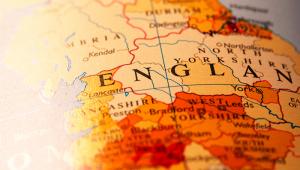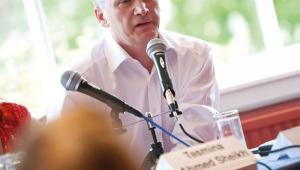Keith Brown, cabinet secretary for economy, jobs and fair work, told an audience of economic development professionals in November: “The biggest cloud on Scotland’s investment horizon remains the Brexit negotiations so it is vital that the UK government provides clarity.”
He also urged Scottish local authorities to maintain and develop their European links after Brexit – even if it exposed them to media criticism for junketing.
Brown claimed that a policy had arisen in the 1980s of channelling economic development to the English Midlands, where the most votes were to be gained: “The North of England lost out, along with Scotland, Wales and Northern Ireland. What helped that situation were the European funds that came in and took up that slack.
“European structural funds have been of immense benefit to Scotland over the past 40 years,” he said, citing in particular their importance to infrastructure investment in the highlands and islands.
UK ministers have guaranteed funding for projects contracted before Britain’s departure from the EU.
Brown demanded an assurance that whatever ultimately replaced structural funds would provide “no less than the current level of funding, and [give Scotland] the autonomy over that funding to align it with Scottish priorities”.
He told the Economic Development Association of Scotland meeting in Perth: “You all know very well how much advance notice you need if you want to take full advantage of funding streams, and that is why we have urged the UK government to move on this as quickly as possible.
“Half the programmes for which I’m responsible that involve European funding are already committed,” Brown added. “We have to take advantage of the Treasury guarantee and commit as much as possible to those programmes before Brexit happens in 2019 – that is, assuming that Brexit happens in 2019.”
He defended the controversial decision to create a national strategic board to oversee all of Scotland’s economic development and skills provision, both national and municipal, which some have criticised as a centralising power grab by the Scottish government.
“The aim is to drive common values and a common culture. It’s not to insist on uniformity, but it does insist that we have to have alignment between the various agencies that are working towards the same aims,” Brown said. “We want to have a Team Scotland approach, in the same way that Team Ireland is so effective for Ireland.”
He urged local authorities and other organisations to retain and, if possible, strengthen their links with continental partner communities and institutions, while acknowledging that such partnerships provided an easy target for media scorn. Scotland, he noted, sold just 7% of its produce overseas, against Bavaria’s 75%, which showed the potential for export growth.
The meeting heard an analysis of Scotland’s economic outlook from Professor Graeme Roy, a former head of the first minister’s policy unit, who now runs Scotland’s best known economic forecasting body, the Fraser of Allander Institute at Strathclyde University.
Roy admitted that the economy had faced many difficulties, observing that GDP per head had grown by 20% in the first seven years of devolution up to the onset of the banking crisis, but by only 2% in the subsequent 10 years, well behind the rate of growth in the rest of the UK.
Fiscal devolution made the effects of this much greater, Roy added.
From next year, half of Scotland’s public finance budget would depend on the country’s economic performance.




















